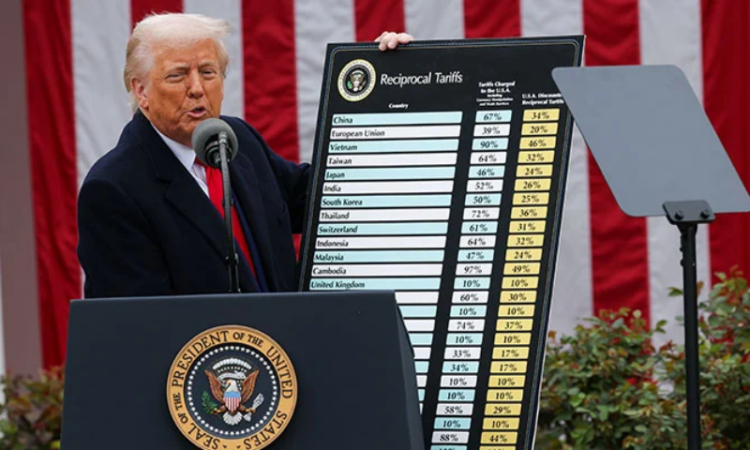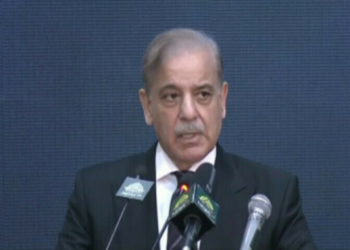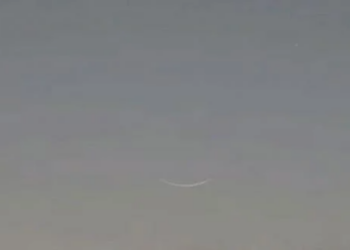Washington, April 3, 2025: In a sweeping escalation of trade tensions, US President Donald Trump has announced a 29% tariff on Pakistani imports, citing Pakistan’s 58% tariff on US goods as the basis for the decision. The move comes as part of a broader executive order imposing a 10% baseline tariff on all imports and significantly higher duties on select trading partners.
The reciprocal tariff policy aims to match the trade restrictions imposed by other nations on US goods. Addressing the nation from the White House Rose Garden, Trump argued that the new tariffs would protect American jobs and manufacturing. However, the decision has triggered global market turmoil, with major indices in Asia, Europe, and the US plunging amid fears of a protracted trade war.
Pakistan’s 58% tariff on US goods has long been a point of contention in bilateral trade relations. The US has repeatedly raised concerns over non-tariff barriers, regulatory hurdles, and high import duties imposed by Pakistan to protect its domestic industries, particularly in textiles, agriculture, and pharmaceuticals.
The 29% tariff on Pakistani exports is expected to hit key sectors such as textiles, leather goods, and surgical instruments, which rely heavily on US markets. The textile industry, accounting for nearly 60% of Pakistan’s exports, is particularly vulnerable, as higher costs could make Pakistani goods less competitive against regional rivals like Bangladesh and Vietnam.
Pakistan’s Ministry of Commerce has termed the move “unjustified and damaging”, warning that it could widen the trade deficit and undermine economic stability. Officials are reportedly considering countermeasures, including tariff hikes on US imports and exploring alternative markets.
Trump’s tariff spree has drawn widespread criticism. China, Japan, and the European Union have all condemned the measures, warning of potential retaliation that could further destabilize the global economy. Canada and Mexico, already hit with 25% tariffs, have avoided additional penalties under this announcement.
The International Monetary Fund (IMF) has cautioned that the tariff hikes could lead to higher inflation, reduced global trade, and economic slowdowns, especially in emerging markets like Pakistan.
The 10% base tariff will take effect on April 5, with the higher reciprocal tariffs, including the 29% levy on Pakistan, starting April 9. While Trump insists that the tariffs will benefit American workers, economists warn that they could raise costs for consumers and businesses, leading to economic uncertainty in both the US and affected countries like Pakistan.
As tensions rise, Pakistan may seek diplomatic engagement with Washington to negotiate tariff relief or reconsider its own trade policies in response to the escalating economic battle.








